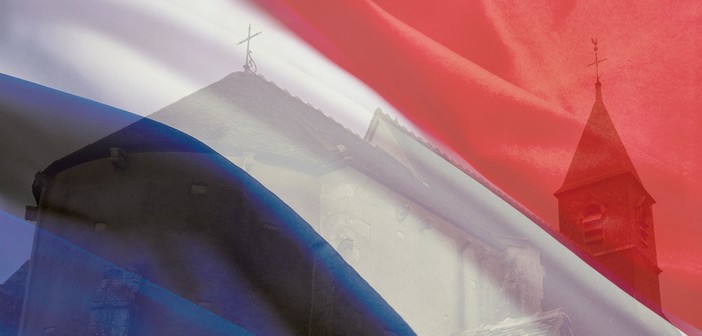At a time when France has never needed to affirm its cohesion more than now, Eric Ciotti’s future bill proposal to enshrine “Christian roots” in the Constitution is morally indefensible.
The opportunism of this initiative and its goal is to send a subliminal message to a traditionalist Catholic electorate: France is secular and Christian; and, as everyone will understand, it is not Muslim and will not allow itself to be subjected to sharia, the veil, the burqa, minarets, halal, etc.
A position that also serves to legitimize more questionable moral and political attitudes – not just electoral ones – such as the rejection of immigrants and the disdain for Islam.
We are far from affirming the cultural, religious, and humanist heritage of Europe, from which the universal values such as the inviolable and inalienable rights of human beings, as well as liberty, democracy, equality, and the rule of law have developed.
Speaking specifically of Christian roots… amputated in the more recent version of the “Judeo” reference that traditionally accompanied it.
Regarding the term “Judeo,” it is always cynical to hear these nationalist activists speak of Judeo-Christian roots knowing that Christianity was largely built by suppressing Judaism. Moreover, until recently, Jews were seen as the “deicidal” people.
Is it necessary to recall that Saint Louis, the very Christian, forced Jews to wear a distinguishing mark? That during the Reconquista, Jews encountered the same fate from Christians as Muslims? That Jews were subjected to discrimination in practicing professions and even in their private freedom with the institution of the ghetto?
Is it finally necessary to recount, in France, the Dreyfus Affair or the anti-Semitism of the 1930s and 1940s? Or even the Vichy government and the roundups?
And as for “Christian roots,” what Christianity are we discussing? Since 1054, Catholics and Orthodox have been at odds. The Crusaders even pillaged Constantinople in 1204! Are we also talking about the Waldensian or Cathar heresies, these tens of thousands of Christians killed for not being Catholic? Are we discussing the schism between Protestants and Catholics that led to numerous massacres like Saint Bartholomew’s Day Massacre and religious wars such as the Thirty Years’ War (1618 to 1648), which was a European civil war?
Furthermore, are we talking about the Christian currents erased from history and eliminated in the early centuries because they saw Jesus as an ethereal being (like the Gnostics or Marcionites, for example)?
And what about the other “roots” of Europe and France?
If we could interview the forcibly Christianized peoples such as the Saxons, what would they think of this notion of “Christian root”? And what about those druids, shamans, and other witches condemned, ostracized, or burned for being pagan? Of these megalith and menhir sites destroyed by Christians?
What would the life of a “French person of origin” be today if there were only Christian roots?
Does this French person of origin know that Homo sapiens arrived in Europe 44,000 years ago, approximately 42,500 years before the baptism of Clovis? Do they know that their Gaul ancestors worshipped multiple deities, that they built cities and villages long before the arrival of Christianity in Lyon in the 2nd century AD?
The argument is far from exhaustive, as the notion of French Christian roots is devoid of any meaning and historical truth.
In paraphrasing, one might say that the French, like other peoples, have origins, not roots.
Fortunately, because it is trees that have roots and are fixed in place.
France, in the Declaration of the Rights of Man and of the Citizen, asserts the freedom of individuals to choose how they wish to organize their life in the respect of others.
Wouldn’t it be better not to confuse the citizen and the believer?
Why try to create a mix where none is warranted?
It is the Gospel itself that says: “Render unto Caesar what is Caesar’s, and unto God what is God’s.”
by Garibaldino


